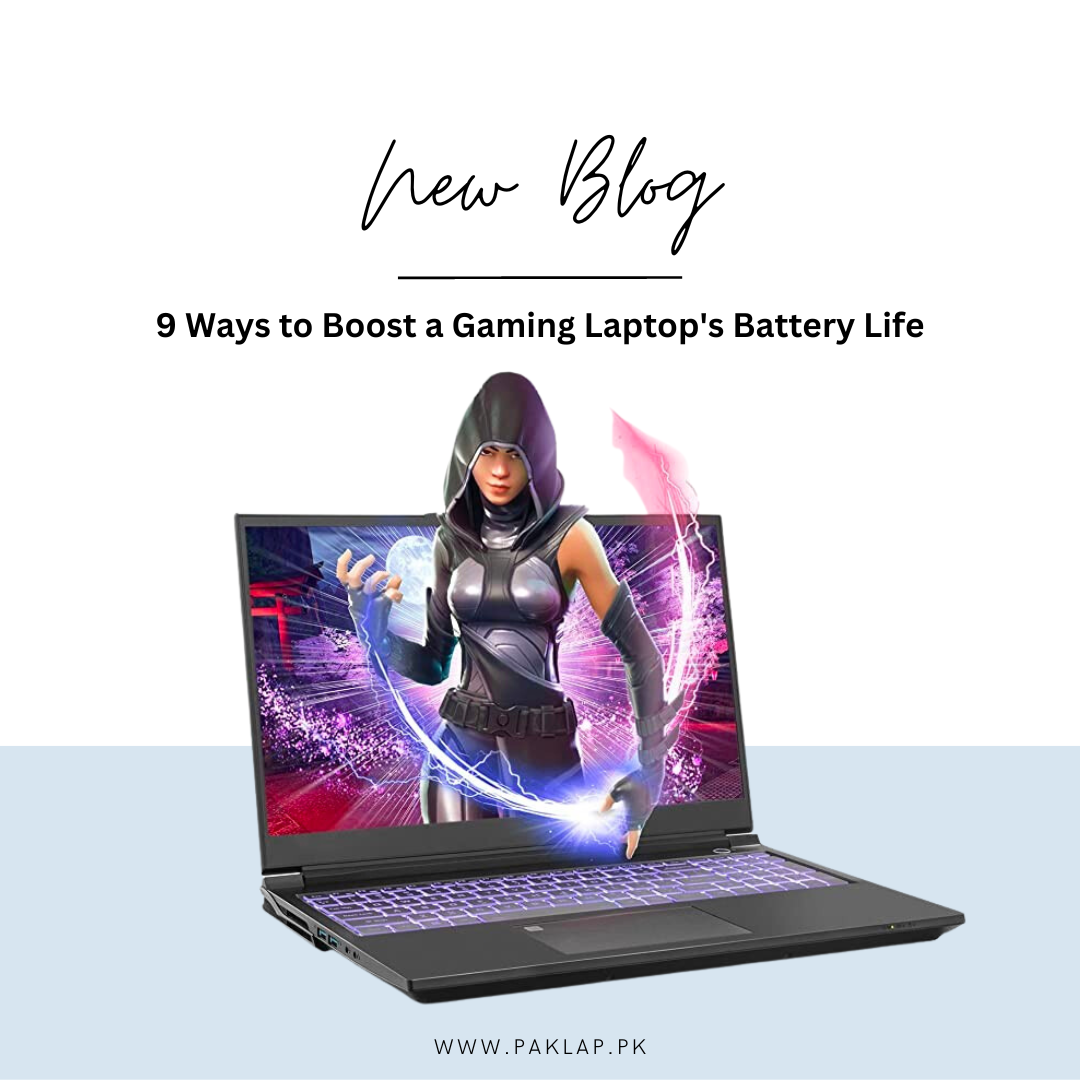How to Increase Battery Life of Gaming Laptop

Picture this: you are in the middle of an intense gaming session, your laptop's battery is at full capacity, and just when you are about to make your epic final score... your laptop dies! Without a doubt, it is the nightmare of every gamer. We have all been there and it is a total annoyance having to keep your charger constantly connected. That is why it is necessary to look after your battery and ensure that it lasts as long as possible. A laptop's battery is a key component because, without one, the device's functionality is greatly restricted.
Why do gaming laptops typically have a limited battery life?
You may have read discussions about the short battery life and limited durability of these notebooks on gaming forums. Due to their small and sleek size, notebooks typically have a limited power capacity. In simple terms, a device's power depends on the size of its power unit. Unlike desktop computers, which can support more extensive hardware, notebooks require optimal room for usage. As a result, users who play games on laptops experience battery drain irrespective of the brand or model used.
9 Ways to Boost a Gaming Laptop's Battery Life
Let us look at some advice to improve the performance and lifespan of the power unit in your gaming laptop once you have figured out why it might not be working as it is supposed to.
Switching to Battery Saving Mode
The power-saving mode, also called the battery-saver mode, efficiently preserves the power supply of the notebook. This feature is particularly useful in situations where you need your device to function optimally, but the power supply is running low. By activating this mode, you can continue playing your favorite games for a few more minutes without any interruptions. It is a perfect solution to prevent any potential panic that may arise when the power unit percentage is almost depleted, and there are no charging ports available.
Disabling Unnecessary Background apps
Your notebook's power supply can be greatly affected by the presence of background applications, making it drain more quickly. While they may seem to have little to no impact, such applications tend to negatively affect your system's overall performance. Therefore, it is advisable to disable background applications via the task manager to maximize the functionality and power supply of your gaming device.
Reducing the Screen Brightness
Brightness and battery life on your device are closely linked. Even if you switch to power-saving mode, you will notice that the brightness drops. It is better to reduce screen brightness before starting a game to avoid eye strain and preserve the power supply. Harvard University conducted a study on sustainability and found that by dimming your screen from 100% to 70%, you could save up to 20% of the energy your monitor normally uses. However, if you are working or playing games on a microcomputer outdoors in bright sunlight, 100% brightness might be necessary.
Turning off Bluetooth or Wi-Fi
If you are playing online games, don't worry about turning off your Wi-Fi. You need it to connect and play. But if you are playing offline, turn off both Wi-Fi and Bluetooth. You will not need them, and keeping them on will just drain your microcomputer’s power for no reason. If you leave your Wi-Fi on even when you are not using it, your device will consume energy looking for a signal even if there is nothing out there. The same goes for Bluetooth. Do not let it keep scanning for devices when you are not using it.
Disconnecting the devices
It is advisable to unplug peripheral devices such as a mouse, headset, or gaming keyboard when they are not in use to conserve power, as they consume a considerable amount of energy. Try to keep your USB ports free whenever you can. Although USB gadgets do not use up much power supply, this simple tip can help you save some additional power that you might require in the future.
Replacing the battery
If your battery is damaged, do not hold onto it and try to make it last longer. It will not work. You need to replace it. But how do you know if it is damaged? Well, the best thing to do is visit the service center and get it checked out. They will let you know what needs to be done.
Ensuring proper airflow
Your laptop requires air to function just like you do. If you spend hours working away on your microcomputer, it is natural for it to start to heat up. That is why it is important to make sure your device has good airflow, no matter where you are. If the air vents get blocked and your system overheats, it can do some serious damage to the battery life. Hence, make sure to give your computer the breathing room it needs. If you are facing this issue, read the article on How to stop a laptop from overheating while playing games.
Keeping the Disk drive empty
If you are not using a disk, make sure to take it out of the drive. Whenever you are about to play games, just take a glance at your drives to see if any disks are in there. Leaving disks spinning in the drives without a reason can gradually kill your power supply.
Lowering the Volume
When you are playing games on a powerful notebook, the speaker quality and sound needs are generally higher than on a regular one. To play it safe and maintain a good power supply, consider using headphones or keeping the volume down a bit. If you are not particularly bothered about hearing all the game’s audio details, muting the speakers altogether is an option that will help you save power. This works especially well when playing games without a lot of audio elements, like music, or sound effects that contribute much to the story.
Conclusion
The most important thing to remember from all of these suggestions is to treat your battery with care and promote its condition from the very beginning. By following the above-mentioned tips, your laptop’s power supply will run smoothly for an extended period. Looking for more information? Check out Paklap!





